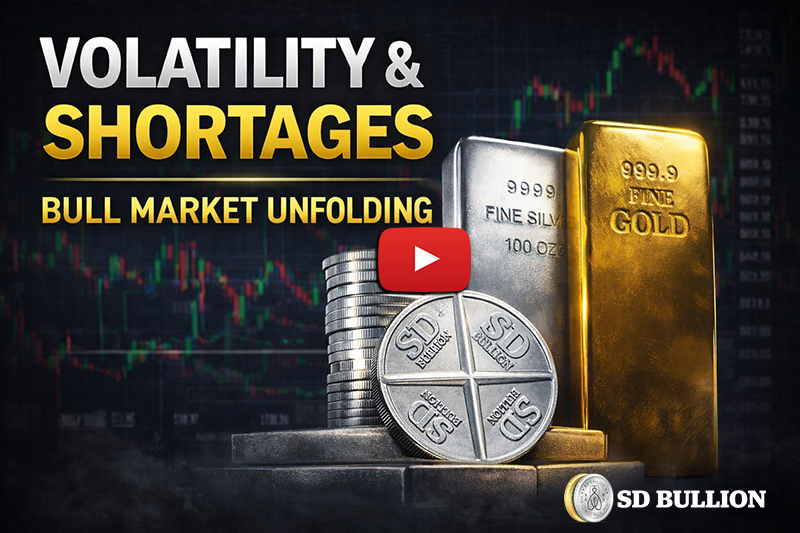Jump to: Understanding Rare Coins | Appraising Coins | Where to sell? | Avoiding Mistakes | FAQs
The numismatic world can be challenging for beginners, especially regarding selling: when you buy a coin, you pay the price set by the seller, but how do you determine the actual value of the coins you are selling yourself?
With that in mind, I’ have put together this guide to equip you with the knowledge you need to navigate the selling process, from identifying your coins to choosing the best channel to sell them.
Keep reading to learn more.
Key Takeaways:
- Due to their history, demand, and scarcity, rare coins hold value beyond their metal content. Collectors and coin experts highly seek limited-edition, error, and event-linked coins.
- A professional appraisal verifies authenticity, grading, and value. The fees are $300 for PCGS and $350 for NGC. Membership is required (PCGS: $69, NGC: $39 annually).
- Auctions (like Heritage Auctions or Stack’s Bowers) often yield the highest prices due to bidding, while selling to a reputable dealer or local shop can offer a quicker process and a face-to-face transaction for added safety.
1- Understanding What Makes A Coin Rare
Like art, a coin's history and rarity often outweigh its material worth in numismatics. Collectors seek limited-edition coins, error coins, off-metal strikes, or those commemorating notable events or figures. Their value can range from hundreds to millions.
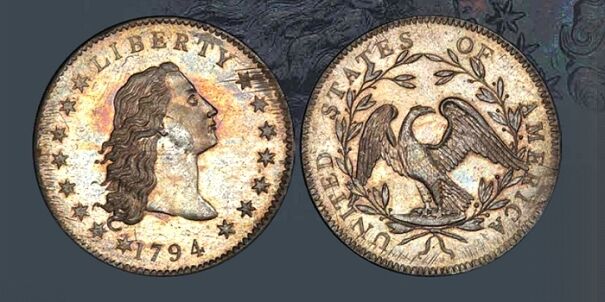
Source: COINWEEK|| 1794 Flowing Hair Silver Dollar
A photo of the 1794 Flowing Hair Silver Dollar (the most expensive rare coin to date). Experts believe this coin to be the first silver dollar struck by the United States, and only about 140 silver dollars exist today. It was sold for $12 million at GreatCollections in 2022.
Knowing the value of your rare coins and exploring all selling options is key to getting the best price. While online tools can give you a general idea of a coin’s rarity, I highly recommend seeking professional assistance. Verifying a coin’s authenticity often requires confirming its composition, year, and design, something best done by an expert, as I explore in the next section.
2- Getting Your Coins Appraised
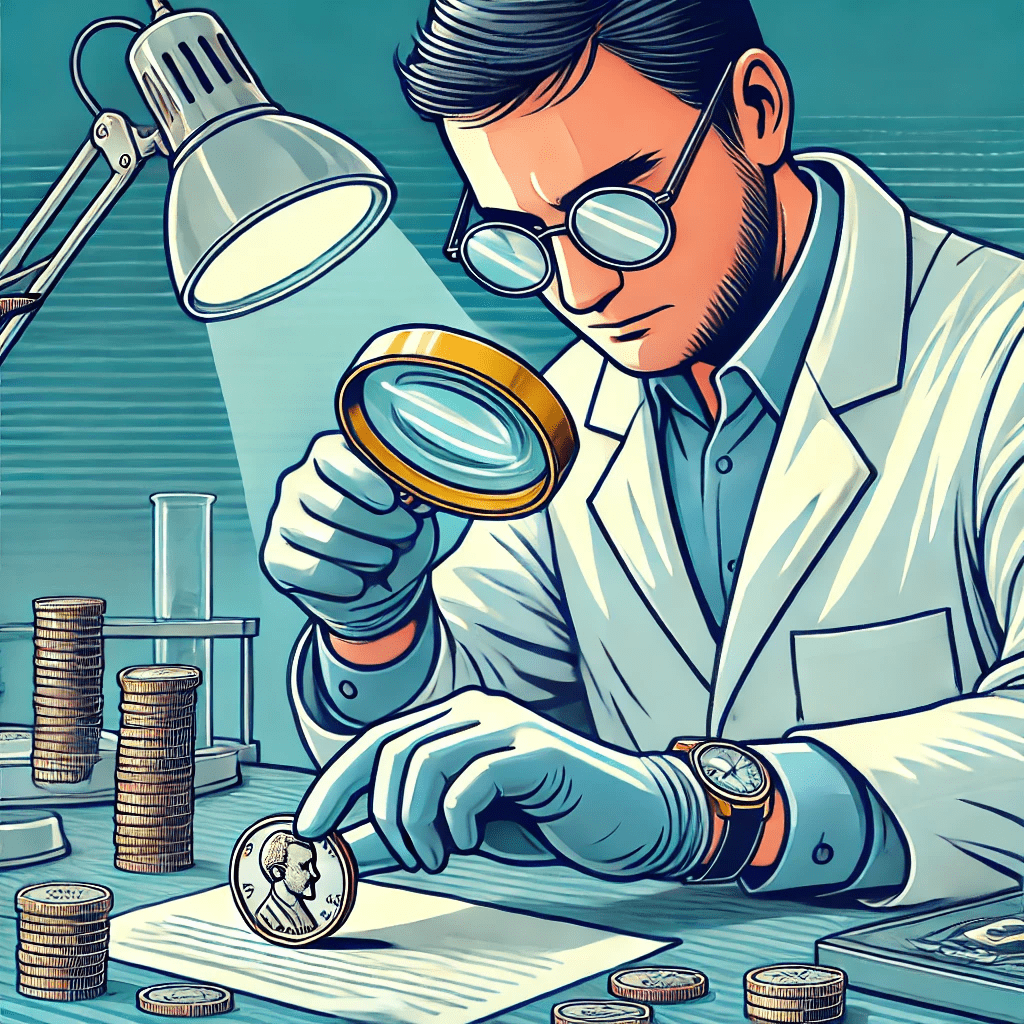
Having a coin assessed means evaluating its authenticity, condition, rarity, and market value. A professional coin grader or numismatist typically leads this process and may involve:
Authentication: Verifying that the coin is genuine and not counterfeit.
Grading: Evaluating a coin's condition based on wear, luster, and strike quality. Services such as PCGS and NGC grade coins use the Sheldon Scale. This numeric system classifies coins from 1 to 59 as circulated and from 60 to 70 as uncirculated, also known as Mint State.
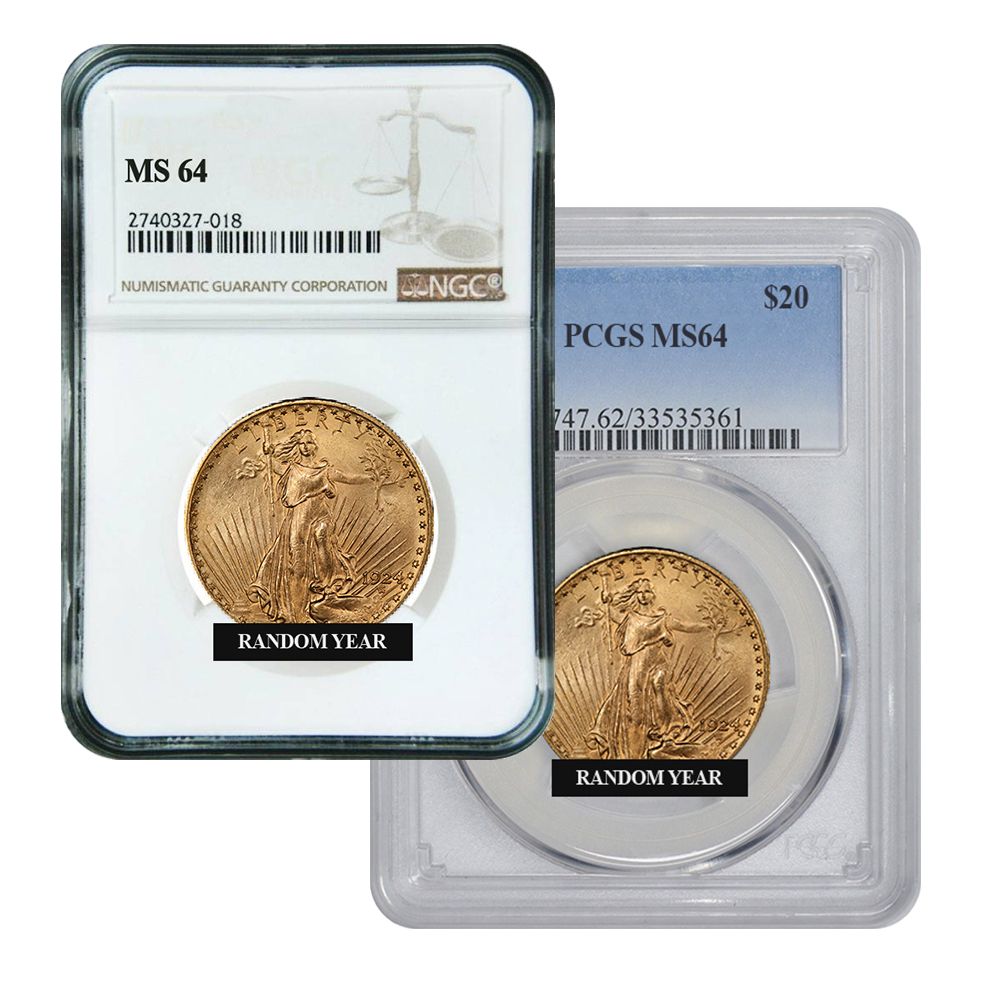
Does Coin Grading Matters?
Collectors typically pay a premium for higher-graded coins, as they are better preserved and retain some of their original lust and sharp design details.
Please read our article to understand the Sheldon Grading Scale further.
Rarity Analysis: Determining how scarce the coin is based on mintage numbers and surviving specimens or estimated survivors.
Market Valuation: Estimating the coin’s worth based on recent auction sales, dealer prices, and collector demand.
Make sure you understand the grading before selling or listing a coin. Misrepresenting its condition, intentionally or not, can damage your reputation and credibility among potential buyers.
The Sheldon Grading Scales is a widely available tool that helps you understand the coin grading system and identify the type of coin you have. However, counterfeits are common, so I strongly recommend playing it safe regarding rarities and consulting a professional for accurate assessment.
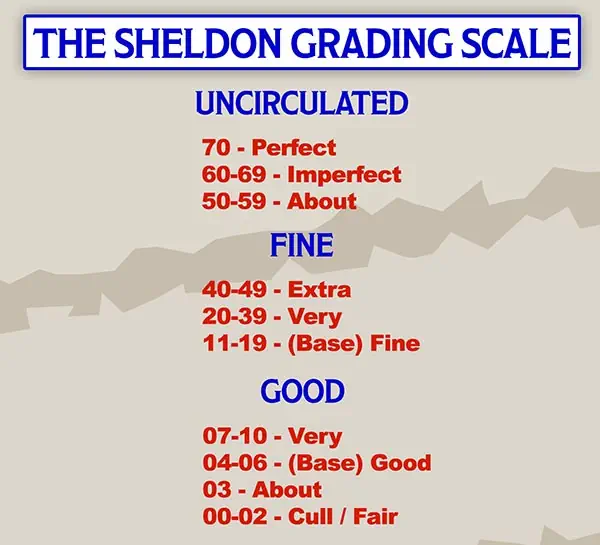
3- Choosing The Right Sales Channel
Once you have your rare coins' accurate value set, it is time to consider options to sell your rare coins, including going to a rare coin dealer, auctioning them off, or selling through an online auction site. Consider each option's downsides and advantages carefully before deciding which is best for you.
Options for Selling Rare Coins
Online Dealers
Online dealers should be your most trusted source for selling rare coins. At SD Bullion, for example, you will find a simple buyback process, and our team is constantly buying a variety of bullion products to update our inventory.
With only three steps, it's quick to receive payment for your coins.
Local Dealers
Selling to a reputable coin dealer can be wise, as they offer expertise, reliability, and a fair price. This is one of the easiest ways to sell coins, as it requires no shipping or minimum cost. However, it's essential to research and find a trusted dealer. This option can also provide security, as many people prefer face-to-face transactions.
Coin Shop
Selling to a local coin shop can be a great option, as they often provide a straightforward and fair process. Start by researching well-reviewed coin shops in your area, and consider visiting one to get a quote for your coins. It's always a good idea to seek a second opinion to get the best possible price.
These days, you can effortlessly search online for coin shops near you, visit their websites, and check what they specialize in. When googling, look at customer reviews, not just the highest ratings but also the number of reviews, as a high volume suggests frequent visits and a well-established business.
Additionally, verify whether PCGS or NGC authorizes the dealer. As of this writing, PCGS-authorized dealers must be full-time coin dealers for at least three years, among other stringent requirements, to ensure authenticity. You can also use NGC’s website to find certified dealers by entering your zip code.
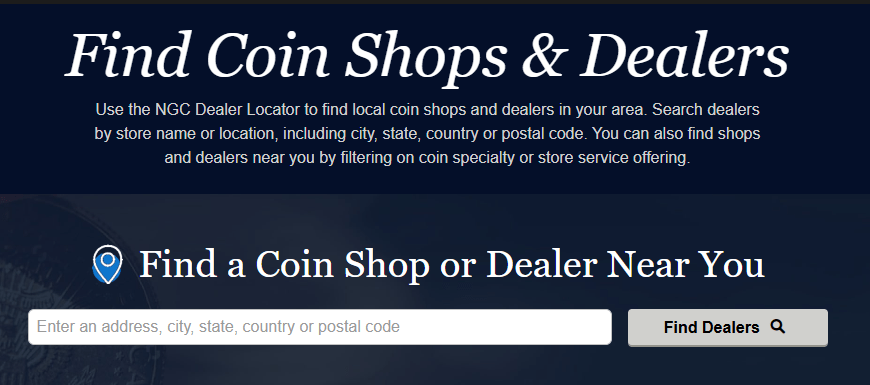
Source: NCG|| Local Coin Dealer Locator
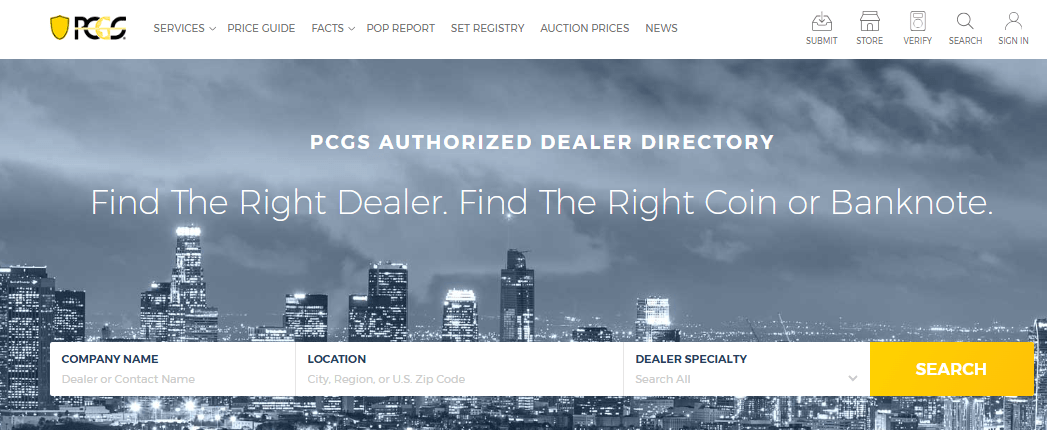
Source: PCGS|| Dealer Locator
You can filter by specialty and coin type, including copper, nickel, silver coins, gold coins, rare coin collection, and extremely rare coins.
Coin Shows
These events feature numerous coin dealers showcasing their products, including coins, paper money, and tokens. Different dealers sell and buy from the public during a coin show, making it an excellent opportunity for collectors and sellers to exchange their mint sets or even a large collection.
Formal Auction Houses Online
Selling coins online can be an excellent option for those comfortable photographing, listing, and shipping items. The right platform allows you to reach a broad audience and maximize profits.
Reputable auction houses like Heritage Auctions and Stack’s Bowers provide a trusted way to sell rare coins. Their expert grading and evaluation services attract serious collectors, which can help speed up the selling process and make as much money as possible.
However, be aware of their fees, which may impact your final earnings.
These auction houses also have established databases of interested buyers, increasing the chances of a successful sale.
eBay
If you prefer a more direct approach, eBay offers a large marketplace for coin collectors. The most significant advantage is its vast reach; you have access to a global audience of buyers. Despite the greater exposure, fees are still based on the amount of the selling. To increase your chances of a successful sale, use high-quality photos and provide detailed descriptions of your coins in your listings.
4-Avoiding Common Mistakes
Regarding rare coins, the less they are handled or altered, the better, especially if you prepare them for appraisal.
- Avoid cleaning your coins, even old coins, as this can diminish their value.
- Be cautious with online price guides, as they may not always reflect market value. If you're new to coin collecting, seeking a professional opinion is essential.
- Avoid going to pawn brokers, as they typically offer only a fraction of a coin’s true value, often reselling them later for a much higher price.
Wrap-Up
In this article, I aimed to provide some guidance on how to sell rare coins.
As you learned, numismatics isn’t an exact science; it does follow a certain logic, but factors like collector demand, sentiment, and historical significance often outweigh purely rational considerations. To navigate this world safely, focus on trusted and established platforms while building relationships with experienced coin dealers.
The more you understand how rare coins are evaluated, the better your experience when collecting and selling coins. And remember, more than just being profitable, coin collecting should be enjoyable. After all, it’s a hobby.
What is the best way to sell rare coins?
There are a few options for selling coins; the best suit will depend on your preferences. Auctions are usually a great way to get high prices due to the bidding dynamics, which typically grant a high value above those at coin shops, with coin dealers, or even the price suggested by the grading company.
How do I find out what my coins are worth?
The best way to assess a coin's value is through professional appraisal by companies like PCGS or NGC. They authenticate the coin, grade its condition on the Sheldon scale (1-70), analyze its rarity, and estimate its market value based on recent sales and demand.
Is there a free app to scan coins for value?
Coinscope is a free app for scanning and identifying coins. However, for rare coins, it's best to have them inspected in person at local coin shops. If you suspect a coin is valuable, consider grading through services like PCGS or NGC, which charge around $300 or more, plus handling and shipping fees.
What to do if you find a rare coin?
The first step is to confirm whether it is a rare coin, which can only be determined through inspection by a professional and reputable coin dealer or a third-party grading service like PCGS or NGC. Even if you don’t intend to sell, having a rare coin appraised and certified can help preserve its condition, as many grading services encapsulate them for protection.
What to do if you find a rare coin?
The first step is to confirm whether it is a rare coin, which can only be determined through inspection by a professional and reputable coin dealer or a third-party grading service like PCGS or NGC. Even if you don’t intend to sell, having a rare coin appraised and certified can help preserve its condition, as many grading services encapsulate them for protection.
How do you get coins appraised?
If the coins are in placement, whether that's a book or plastic holder, capsules, paper rolls, or tubes, let them there and do not take them out of it. PCGS is the most trusted company in that regard; the turnaround time may vary depending on the coin's origin and whether it is an error coin, a special issue, or a date.
How do I sell my valuable coins?
Ideally, the first step is to appraise them professionally to determine their value. If they are not particularly valuable, an appraisal will still give you a clear understanding of their worth. You have several options for selling: you can submit them to an online auction house like Heritage Auctions, which provides sanitized packing materials, detailed instructions, and a prepaid FedEx shipping label. Alternatively, you can sell through reputable local coin shops or trusted rare coin dealers.
Disclosure:
YOUR OWN DUE DILIGENCE IS RECOMMENDED BEFORE BUYING, THIS CONTENT IS FOR EDUCATION AND ENTERTAINMENT PURPOSES ONLY.
THE ANALYSIS AND DISCUSSION PROVIDED BY SD BULLION, INC.
AT SDBULLION.COM AND RELATED MEDIA PLATFORMS IS FOR EDUCATION AND ENTERTAINMENT PURPOSES ONLY.
IT IS NOT RECOMMENDED FOR TRADING PURPOSES NOR IS ANY OF THIS CONTENT FINANCIAL ADVICE. EMPLOYEES AND CONTRIBUTING AUTHORS TO SD BULLION ARE NOT INVESTMENT ADVISERS AND INFORMATION OBTAINED HERE SHOULD NOT BE TAKEN AS PROFESSIONAL INVESTMENT CONSULTING.
THE COMMENTARY ON SDBULLION.COM REFLECTS THE OPINIONS OF THE RESPECTIVE AUTHORS AND NOT THAT OF SD BULLION, INC.
YOUR OWN DUE DILIGENCE IS RECOMMENDED BEFORE BUYING.














